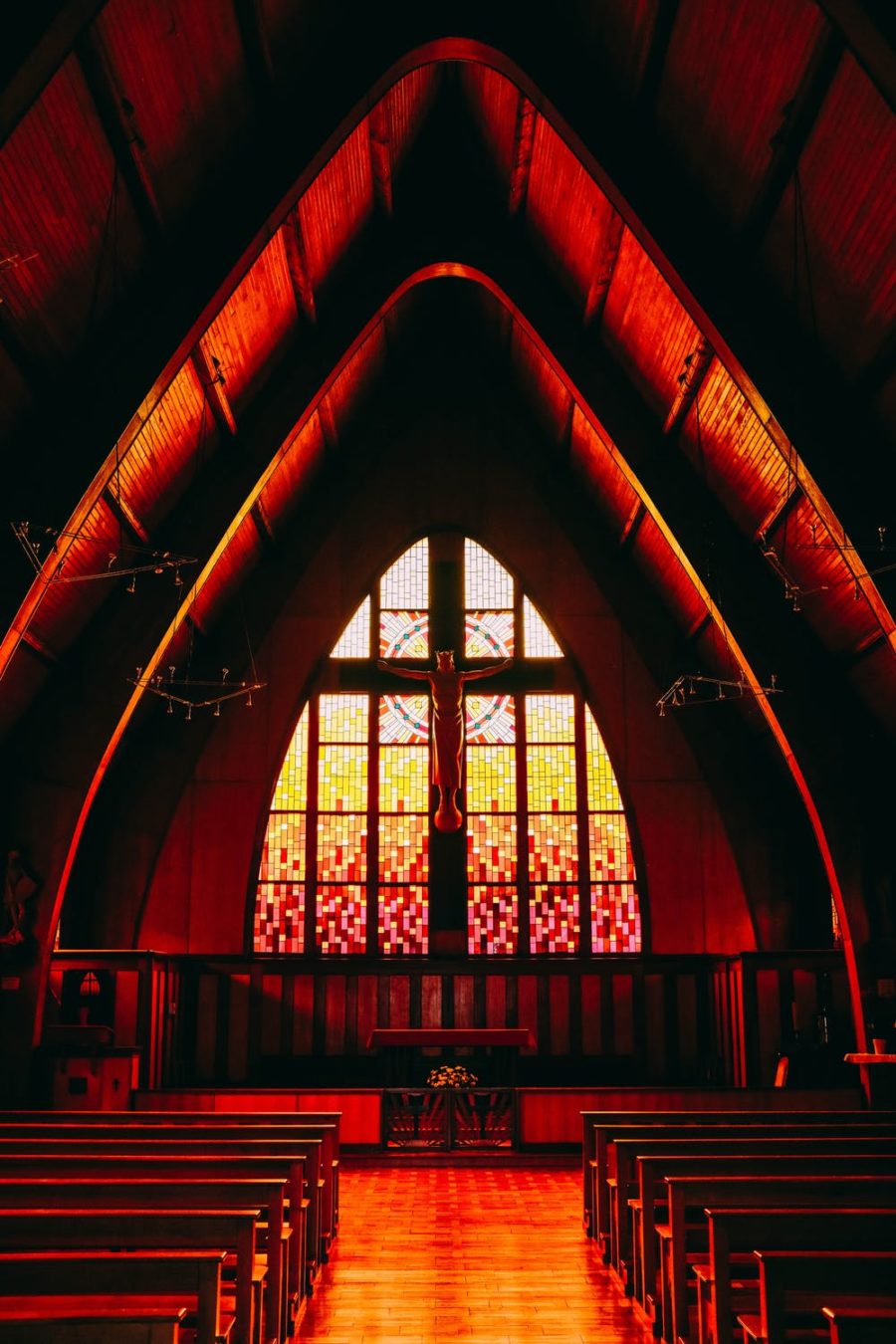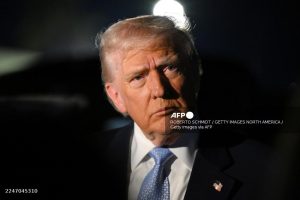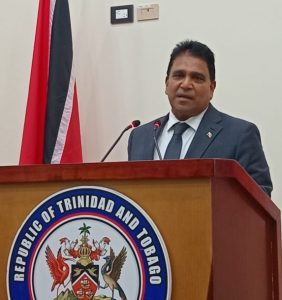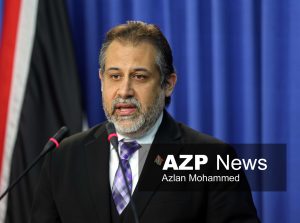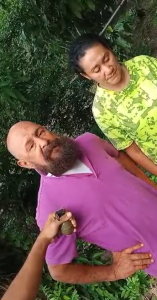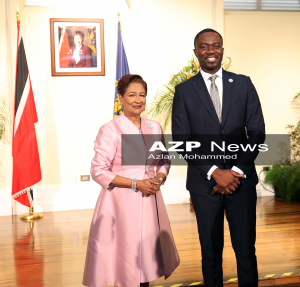‘Many people need to be re-taught and re-socialised into understanding the fact that this world and humanity existed before organised religion’
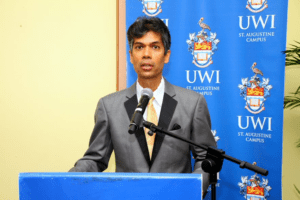
ONE of the major barriers to unity of humanity is religion.
There is a need for peace among the diverse religions, denominations and sects. For too long innocent people have been killed and scorned by others of different religious faiths.
Over the centuries, millions of lives have been lost and psychologically scarred due to religious wars and forced proselytization The tensions are further complicated with fundamentalists and radicals claiming their action is justified because it is done in the name of God.
Many people need to be re-taught and re-socialised into understanding the fact that this world and humanity existed before organised religion. Furthermore, there is a need to be aware that religion (and spirituality) was created and evolved to improve and strengthen the relationship between humanity and God.
Instead, many unscrupulous persons use religion as a mask and shield to accomplish earthly goals. It is unfortunate that in the name of religion many are oppressed, deceived, exploited and condemned. Does God want or expect these antisocial actions? Some certainly act in a self-righteous manner as if God is bloodthirsty, revengeful and enjoys human suffering.
Many Christians from developed countries seem concerned with saving the souls of ‘heathens’, ‘pagans’ and ‘idol-worshippers’ who are usually resident in the poorer countries of the world. They seem like pseudo-Christians who offer a hollow salvation which cannot alleviate the poverty and pain of the poor. A few televangelists appear materialistic, live comfortable lifestyles and wallow in their ill-gotten riches. They seem more like charlatans who offer useless plasters to cover festering political sores and a crippled economy. Their public healings are likened to circuses with a gullible audience. They expect the poor to wear a crown of thorns, bear heavy crosses and still generously contribute from their pittance.
It would be controversial to say one religion is better than another religion. Likewise, no religion or denomination guarantees a place in Heaven, a better life after death, more happiness or a quicker path to enlightenment than another religion or denomination. Thus, to embrace all of humanity there is a need to emphasise similarities rather than differences in the religious teachings. Christians, Hindus, Muslims, Jews, Buddhists and tribal religions must join hands and rid their hearts and minds of petty jealousies and trivial squabbles.
Countries experiencing religious friction can take steps to defuse this tension by promoting inter- religious contact at schools, forums, festivals, public and private gatherings. Gradual and increasing awareness of various belief systems will sow the seeds of religious peace. Even the condemnation of atheists and agnostics by religious persons needs to be questioned. Why ? Because these are expressions of speech that should be allowed to exist or at least be tolerated in a democracy. Open-minded and rational persons must initiate the process in the home and ensure its continuation and success.
Another major challenge facing developing countries is the curse of racism. There is need for more racial and ethnic tolerance. One of the common traits of humans is the tendency to hate, alienate, condemn and destroy fellow humans due to physical differences. Belonging to a particular ethnic group is further complicated as this often means adhering to certain religious doctrines and cultural practices. Opposition and discrimination based on inherent physical characteristics must stop.

The wounds of racial bigotry and ethnic strife are deep and far-reaching. Tribal differences in Africa or Latin America, polarization of various ethnicities in the Pacific, Caribbean, South America, and caste prejudices in Asia— are all responsible for untold suffering, sadness and loss of lives. The struggle between the Third and First Worlds cannot be simplified as poor versus rich or Blacks against Whites. In developing economies as Central Europe, there are persons with blue eyes, white skin and blond hair. They suffer from similar problems as citizens in India and Africa.
Dr Jerome Teelucksingh is an activist. He initiated the inaugural observances of International Day for the Elimination of Violence Against Men and Boys (January 31) and World Day of the Boy Child (May 16). He has made academic presentations at tertiary institutions including Harvard University and Oxford University.
See other articles by Dr Jerome Teelucksingh on AZP News:
The Law of Supply and Demand in Developing Countries
End the Dependency for Developing Countries
T&T Carnival and the Emperor’s New Clothes
The Influence of Labour on Caribbean Integration
The illusion of political Unity
Presbyterians in Trinidad: Humble Missionaries, Local Workers
Religious Plurality: Curse or Blessing
Caribbean Youth Need Optimism, Patriotism
Rethinking Identities in Caribbean, Latin America
November 19: All Inclusive International Men’s Day
Should International Agencies be Blamed for Unemployment
A Need to Observe Word Unemployment Day
An Ideology for the Trade Union Movement
The Man who Couldn’t be Prime Minister
Social Outburst vs Social Revolution
Challenges of the Men’s Movement
If George Floyd was Denied Parole
The Meaning of Indian Arrival Day in T&T
International Men’s Day – A Way of Life
Wounds that cause school violence
May Day: A Time for Solidarity, Strength
Who Coined the Term ‘Black Power’
The illusion of political Unity
Presbyterians in Trinidad: Humble Missionaries, Local Workers
Religious Plurality: Curse or Blessing
Caribbean Youth Need Optimism, Patriotism
Rethinking Identities in Caribbean, Latin America
November 19: All Inclusive International Men’s Day
Should International Agencies be Blamed for Unemployment
A Need to Observe Word Unemployment Day
An Ideology for the Trade Union Movement
The Man who Couldn’t be Prime Minister
Social Outburst vs Social Revolution
Challenges of the Men’s Movement
If George Floyd was Denied Parole
The Meaning of Indian Arrival Day in T&T
International Men’s Day – A Way of Life
Wounds that cause school violence
May Day: A Time for Solidarity, Strength
Who Coined the Term ‘Black Power’
![]()


